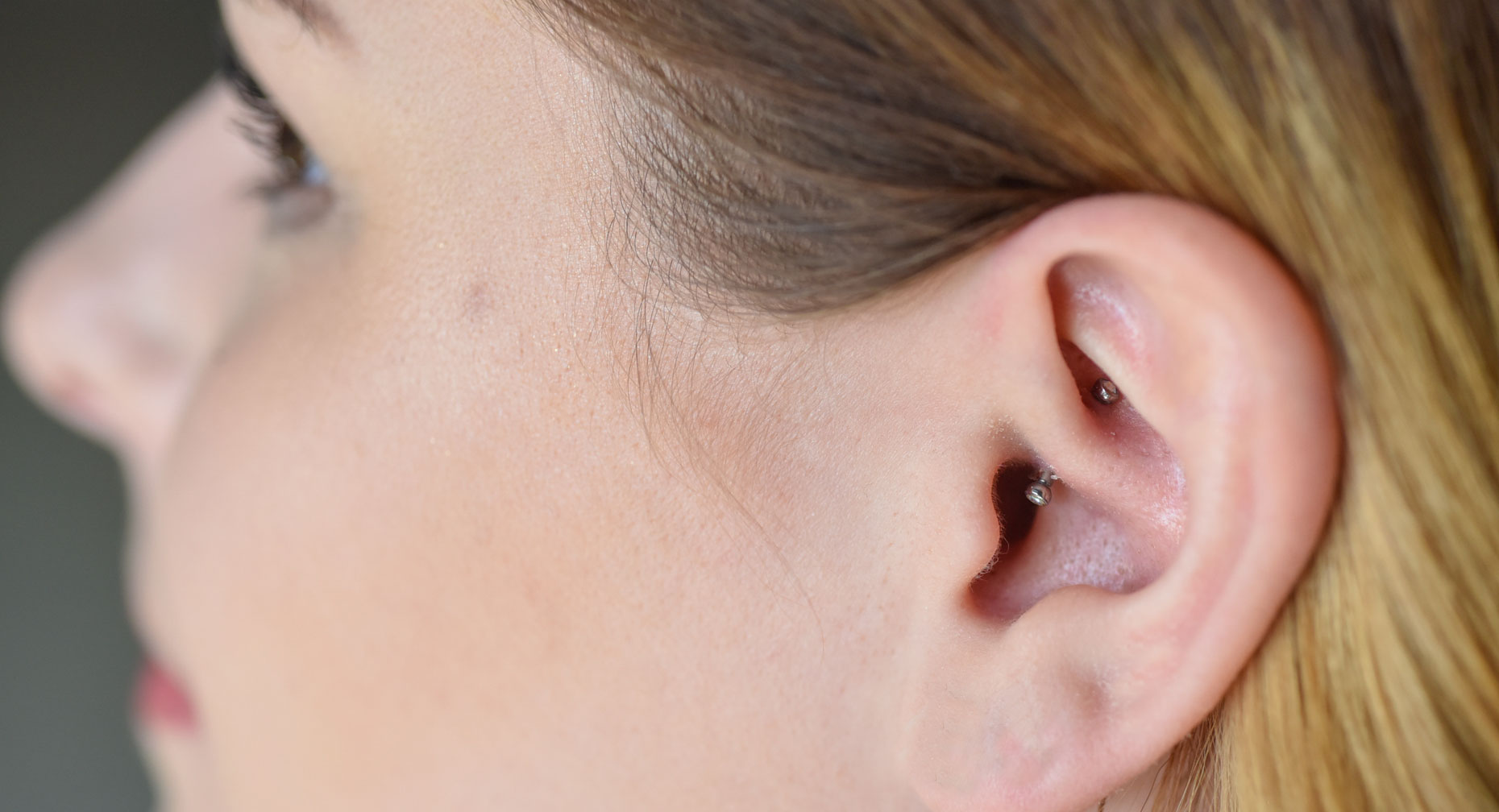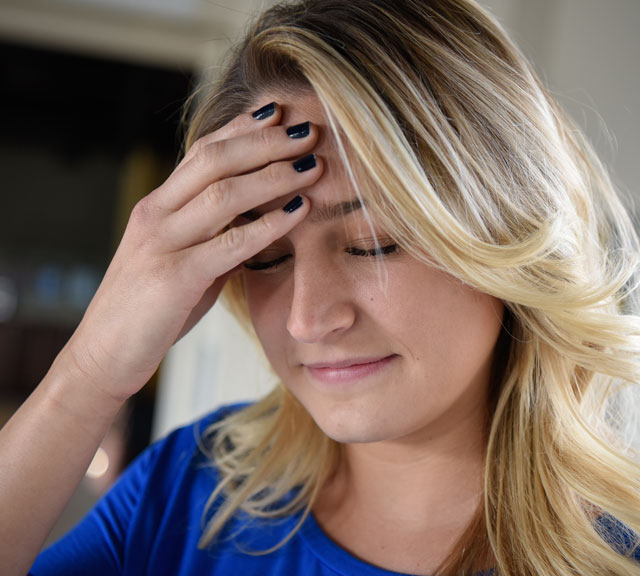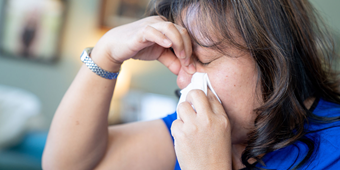Can Daith Piercing Stop Your Migraine Pain?

Answer a few questions and we'll provide you with a list of primary care providers that best fit your needs.
If you’ve ever experienced a migraine headache, you know that the pain can be excruciating and last for hours. A recent social media explosion about daith piercing has some migraine sufferers singing its benefits, despite a lack of scientific evidence to support that claim.
Daith piercing is a piercing of the inner ear cartilage that some people believe can relieve migraine headaches.
“The practice is similar to acupuncture in that there is a pressure point in the same spot where the piercing is done,” says Richard Kim, MD, Clinical Neuroscience Institute physician. “But we don’t know if it does the same thing as acupuncture.”
Migraines involve nerve cells, hormones and blood vessels in the brain. Hyperactive nerve cells signal blood vessels to expand. This also releases inflammatory hormones that cause painful pulsing in those blood vessels.
Acupuncture is a holistic Chinese practice that uses thin needles placed into the skin to stimulate specific points on the body. It’s used to relieve pain and treat various health conditions.
A daith piercing punctures the cartilage of the outer ear, at the spot where the cartilage ridge called the helix meets the opening to the inner ear. The practice of piercing this location on the ear has existed for thousands of years, says Dr. Kim.
“I would recommend a proven treatment and on top of that, if you really want to, then you can do a daith piercing."
No Scientific Evidence
The renewed interest in daith piercing came from widespread sharing of a 2015 student-written article, “A ‘Piercing’ New Alternative for Migraine Relief,” published by the State University of New York at Purchase. As the story was reposted on social media sites, more people began to try daith piercing for migraine relief.
“Patients hear about it, and it’s similar to when people hear about a diet that worked for someone,” says Dr. Kim. “It doesn’t mean it will work for you or for everyone.”
At this time there is no real scientific evidence that daith piercing reduces or stops migraines or headaches. There have been no clinical trials to test daith piercing and there is no research to support its use as a migraine treatment.
Even Snopes.com — the website known for completing exhaustive research on rumors and urban legends — tackled the daith piercing claims. Investigators found nothing more than anecdotal evidence.
Scientific data is also inconclusive when it comes to the link between acupuncture and migraines, which may or may not be helped by the ancient treatment.
Proven Treatment Options
If you suffer from migraines, you should follow your doctor’s recommendations for preventing headaches, including proven migraine and headache treatments, says Dr. Kim.
A first line of migraine treatment includes avoiding triggers. Triggers vary for each person and may include:
- Caffeine
- Alcohol
- Stress
- Certain foods
- Physical exertion
- Strong smells
- Sensory stimuli like sun glare or loud noises
Other common migraine treatments include:
- Hormone replacement therapy for women
- Medicines to manage and prevent migraines
- Cognitive behavioral therapy
“I would recommend a proven treatment and on top of that, if you really want to, then you can do a daith piercing,” says Dr. Kim.

What to Know About Daith Piercing
If you are thinking about a daith piercing, Dr. Kim recommends doing some research first to make sure you know what you are getting into. You should also remember that the procedure might not provide relief from your migraines.
“I’ve had several people come in and show me their piercing and it is in the wrong spot,” Dr. Kim says. “Not everyone who does it knows the correct location.”
Here are some points to consider about daith piercing:
- Pain: A daith piercing can be painful and uncomfortable because it goes through cartilage.
- Infection: There’s a risk of irritation and infection at the piercing site.
- Non-medical: Piercing and tattoo artists are not typically trained in acupuncture, but they perform the daith piercing.
- Complications: A keloid — a hard, smooth growth or scar — may develop at the piercing site.
“I do not recommend daith piercing to treat headaches, but if you want to do it because you like the look and it does help your headaches, that’s a nice added bonus,” Dr. Kim says.
Answer a few questions and we'll provide you with a list of primary care providers that best fit your needs.
Source: Richard Kim, MD, Clinical Neuroscience Institute; Migraine.com; Snopes.com





